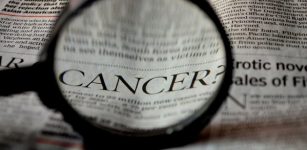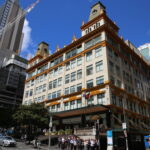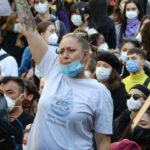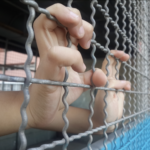Returning to Work after Cancer: An Interview with Professor Bogda Koczwara

In the past, the C word was something people didn’t like to discuss in polite company. However, with increasingly better treatments becoming available, cancer no longer necessarily marks the end of a person’s life.
This year, the number of Australians living with cancer or having survived a diagnosis of the condition has exceeded one million for the first time. Two out of every three people who’ve been diagnosed will go onto survive.
After diagnosis, a cancer patient’s initial focus is seeking treatment and beating the disease. But then they also have to consider whether they’re going to continue working during treatment, or how they’ll return to work afterwards.
A survivor’s story
Don is a middle-aged South Australian man who was diagnosed with cancer. “The experience of cancer was a shock. And so you think, “Oh my god, what’s going to happen?” he recalls. “And you don’t really know.”
After treatment, Don was able to return to work gradually with the support of understanding colleagues. He got metastasis eighteen months later and, being a healthcare professional, was able to take a prolonged “sabbatical” and live off his superannuation.
In many ways, Don was one of the lucky ones.
The difficulties faced by survivors
Not everyone who’s diagnosed with cancer is able to take time off work. They have to consider whether to work during treatment in order to pay the costly medical fees. And certain professions are harder to return to after recovery.
A recent Australian study on the socioeconomic effects of the disease found that 67 percent of participants surveyed changed their employment after cancer, and 63 percent had a drop in their household income.
Cancer patients are at greater risk of unemployment than the rest of the population. And in Australia, there are no rehabilitation programs to help cancer survivors return to work – which leaves many not knowing what to do or where to turn.
Workaftercancer.com.au
And that’s where the Work After Cancer website comes in.
This Flinders University initiative provides detailed information about returning to work for people diagnosed with cancer. It helps survivors develop strategies to return to the workplace, and outlines their legal rights and responsibilities.
The site also provides resources for employers and healthcare professionals to access.
A group of nine researchers led by Professor Bogda Koczwara worked over a two-year period to consolidate the information. And the project was funded by Cancer Australia’s Supporting People with Cancer Grant Initiative.
Sydney Criminal Lawyers® spoke with Bogda Koczwara, professor of medical oncology at Flinders University, about the obstacles a cancer survivor faces and the work they’re doing to change this.
How many people in Australia are diagnosed with cancer each year?
The statistics tell us that there is about 130,000 new cancer diagnoses in Australia each year. And the numbers are slowly increasing. Out of those, probably about half, would be of employment age.
And as our concept of work again increases and the retirement age shifts, the proportion might potentially increase.
What’s it like for these people to have to continue working while they have cancer?
It depends a little bit on what type of cancer and what type of cancer treatment people have. That’s for a number of reasons.
The simple one, is that cancer and cancer treatment can give you symptoms. They can be fatigue, nausea, difficulty concentrating and that obviously depends on the type of cancer treatment.
For example, if you have cancer surgery, you might have time recovering. You might have difficulties mobilising. If you’re having chemotherapy, you might be nauseated. If you’re having radiation treatment, you might have skin burns.
The second reason is that the treatment itself keeps you busy. You might be busy attending appointments, which means that you kind of have to work out your work responsibilities around other responsibilities – which for some cancers can be very intense.
And the last thing is, diagnosis of cancer is often a very stressful event and people often re-evaluate their priorities at the time.
They say, “Well now that I’ve got a health threat of that magnitude, I may wish to spend my life differently.” Maybe work less. Maybe spend more time with their family.
So I think the key point is that the experience of working after cancer depends on an individual. On their cancer type and their cancer treatment. On their life stage and life goals.
But there is no doubt that for many people it throws a lot of challenges, as does the cancer itself.
Do you find that there’s a stigma associated with having cancer? Is it hard for people to reveal to their employers that they have it?
We know that there is a stigma attached to cancers, and some cancers in particular. For example, cancers that are associated with smoking – like lung cancer – are stigmatised.
But there is also an issue of concern relating to the revelation that the person has a cancer diagnosis and that may impact on work.
Now, sometimes that may be unjustified because we know of a number of employers who are very supportive and very reasonable. And we know there is legislation in Australia that expects fair treatment for people with a diagnosis of cancer.
So sometimes the fear of revealing the diagnosis may be unjustified, but people may not be aware of that.
There may be situations where there is a concern of an employer regarding a person’s ability to work. Some employers may not be that familiar with the legislation and their responsibilities, so there is at least a potential risk of stigma and a risk of misunderstanding.
One thing to add to it, is that employees sometimes are not aware of the fact that they actually do have an obligation to inform an employer if they’re not able to undertake their work safely.
So there is a number of issues and certainly on our website we have information dedicated to cancer patients in regards to what their responsibilities are, and their rights in terms of fair treatment and protection from unfair assessment.
But there is also a section for employers in regards to what their responsibilities are.
Is chemotherapy the only sort of treatment that cancer patients undergo? And is it possible to continue work once they’re undergoing treatments?
Chemotherapy is not the only treatment. Many patients would actually start by having some form of surgery, although not all. Some would have chemotherapy, some would not. Some would have radiation treatment, as the sole cancer treatment.
And there will be patients who have surgery and chemotherapy and radiotherapy and other treatments, for example reconstructive surgery – so it varies. It’s fair to say, the more complex your treatment, the more impact on your ability to work.
We know that chemotherapy is more complex and has got a greater impact on ability to work. But there are chemotherapies and chemotherapies – some patients manage chemotherapy very well and continue working, some don’t.
Some of it is also a factor of how complex your work is.
But eventually a person suffering cancer would have to take time off work. Are there systems of support in place in Australia that can help a person out during their time off work?
Not every person suffering from cancer would take time off work. But some would. Some would go into early retirement. And some would stop work completely and never return.
What can be done? Well, there is a number of things.
One is that, ideally there is a possibility for some to negotiate with the employer with regards to either flexible work arrangements or return to work gradual arrangements – to make the process a little bit easier or more manageable.
There are also opportunities for support for a person not working from the perspective of financial support, either through Centrelink or income protection or superannuation.
The challenge for those is that these supports are often easier to access if you’re not working and yet it is easier to return to work if you are working in that sort of gradual arrangement.
You’ve spoken about the concept of “financial toxicity” in the past. Can you explain what that is?
The concept of financial toxicity originated in oncology literature, as a term to explain financial distress as a result of cancer treatment.
We know that toxicity in general implies impact of cancer treatment on a person. So for example, a person might have heart toxicity as a result of chemotherapy side-effects.
Financial toxicity explains financial impacts as a result of cancer treatment.
Now financial toxicity in general is spoken about from the perspective of a patient to meet the costs of treatment. The drugs and procedures might be expensive. There might be a high co-payment for the cancer treatment. Even things like transport might be a big burden, in particular for people in rural Australia.
In general, people talk about financial toxicity from the perspective of how much it costs to receive cancer treatment.
I’m interested in the term of financial toxicity that incorporates the perspective that if you’re not able to raise an income to meet the costs of cancer treatment, then that makes financial toxicity even greater.
So if a person has difficulties working and therefore generating an income, then their ability to pay will be affected. And we know from research in Australia that unemployment is a significant driver of financial toxicity for cancer.
If we want to address financial toxicity, we need to try to keep the costs low. But also we need to keep cancer patients able to be working, so they can have an income.
And what are the costs like that people face when they’re seeking cancer treatments in Australia?
That depends a little bit again on the complexity of cancer treatment. But we know that with the increasing number of new cancer treatments available – in particular new cancer drugs – there is a much greater range of treatments.
People live after cancer for longer, but that means that they often need to have those treatments for longer.
As the new treatments are being discovered, they’re often quite expensive to start with. So this concept of financial toxicity is a bit of a moving target, but it is an ongoing challenge in all developed countries and certainly in Australia.
Once a person has finished treatment and they’re over their cancer, what’s it like for them to return to the workplace?
I think the important point to make here, is that the treatment might be finished, but the impact of the treatment may take a little bit longer to resolve.
So a person who’s completed treatment may still have side-effects. They may be fatigued. They may be worried about cancer reoccurring, so they may be having issues to deal with emotionally.
There is a certain lag time. A person may have completed their appointments but the impact of treatment may not be over. And therefore the impact on the workplace may not be over.
We know that overtime – let’s say a year down the track – the ability to return to work is much better, and the physical and emotional fitness is much better.
But that depends a bit on the complexity of treatment and the complexity of the job the person is doing.
There aren’t any real programs available in Australia to help a person who’s had cancer return to the workplace. Are there programs in other parts of the world that help people in this situation?
In Northern Europe – in particular Scandinavia, the Netherlands and Germany – there are well-established rehabilitation programs for cancer and these programs often include return to work rehabilitation – vocational rehabilitation.
We don’t really have a similar model in Australia as yet.
There are significant opportunities if we could really build rehabilitation after cancer that incorporates return to work. That’s something we could certainly consider implementing in Australia, but we haven’t done so yet.
You, along with the rest of the research team, have developed the Work After Cancer initiative at Flinders University. Can you explain what that is? And how it helps people in this situation?
We have learned from feedback from cancer patients, their loved ones and from healthcare providers and employers that the first step in addressing issues relating to work after cancer is easy access to information.
There is a lot of information on this topic available, but it often sits in different pockets of information. It’s sometimes very difficult to navigate where information might be.
So we felt that developing a resource that pulls together different information that can be accessed in one easily identified location would be useful.
We also felt that it would be useful to make sure that information is tailored to needs. So on the website we have information available for patients and their loved ones, different types of information for healthcare providers and different available to employers.
We also know that there is a need for information that’s not just telling people about what the problem is, but giving them some specific tools with how to deal with it.
So for example, that might include a list of questions that you might ask your employer or a doctor. A template with how to develop a structured return to work plan that the doctor might use. Some tips on what to access when you’re accessing a patient’s ability to return to work. Or some contact numbers of where the providers might be or where the resources for financial support might be.
We’ve tried to make the website as practical as it could be and we constantly have the ability to update it, so we hope that this will be as current as it can be. And we’ve already updated it as legislation is changing.
Having said that, we recognise that a website is a very worthwhile starting point, but it’s not the only way of addressing the needs of cancer patients with regards to work. They include things that we’ve already discussed, like further strategies for rehabilitation, as well as the research of what might be specific needs in the Australian setting.
So this is the beginning, but we certainly have more to do.
And lastly, Professor Koczwara how did you come to be involved in this initiative? How did you develop your focus on the needs of cancer survivors?
I’m lucky to be working in an era, where we’re seeing more and more cancer survivors because cancer treatments are getting very effective. The majority of patients that I see are women with breast cancer – a cancer that is very curable.
So I see a lot of cancer survivors who are well and cancer-free.
But in talking to them it occurred to me that there are other issues that survivors face. And I’m certainly interested in a variety of issues that cancer survivors face, from physical to emotional to practical.
Work after cancer is a very practical concern, which is particularly interesting because it may not be at the forefront for a cancer survivor on the day that they are diagnosed.
But it certainly becomes an issue later on when they start thinking about the big picture and what’s going to happen to them in the long run.
Certainly, work is important not just because it pays your income, it’s also important in terms of identity: who you are and what you’re trying to do in life. And those issues are very much important to cancer survivors.
I’ve been doing this for long enough to recognise that it’s something that is relevant to survivors and I’m very lucky to have an opportunity to do something about it.
Thank you very much for taking the time out to speak with us Professor Koczwara. And best of luck as you further develop the Work After Cancer initiative.
Pleasure. Thank you very much.







